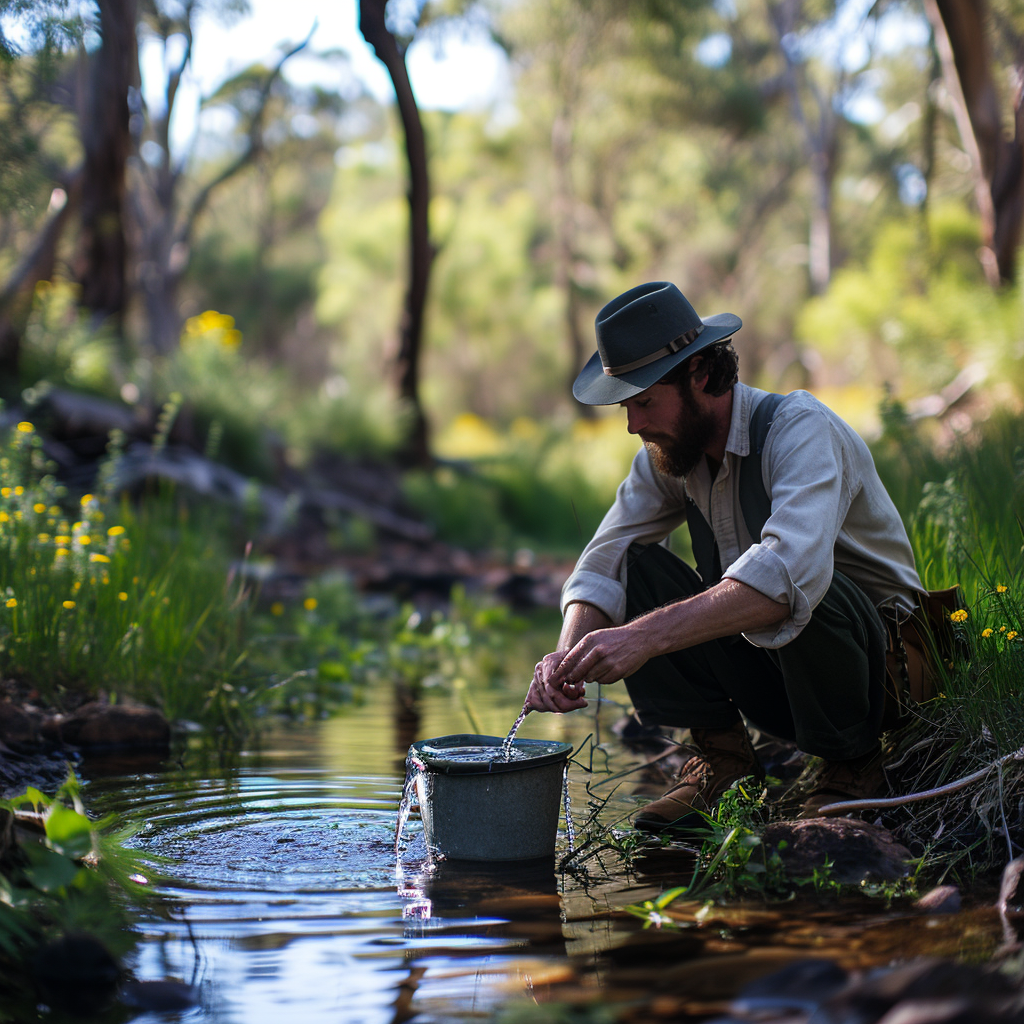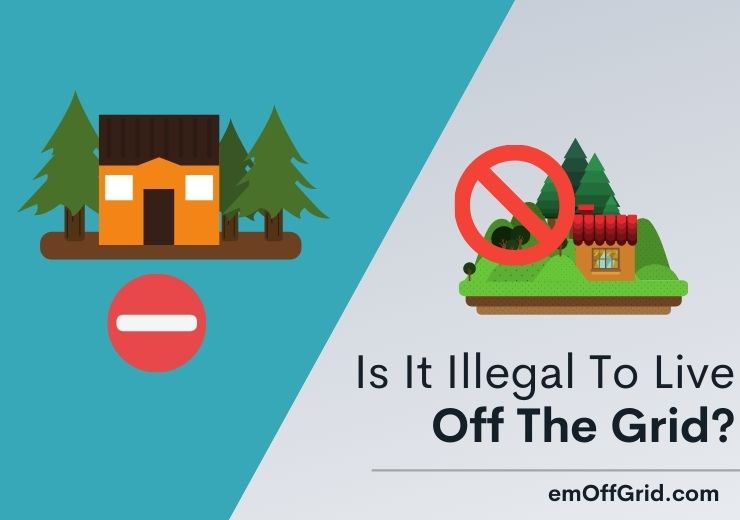Off grid living laws Utah present a complex landscape for those seeking self-sufficiency. Navigating the legal requirements for land ownership, water rights, building permits, and utility access in the Beehive State requires careful planning and understanding of diverse county regulations. This guide delves into the intricacies of establishing an off-grid dwelling in Utah, outlining the essential legal considerations and practical steps involved.
From understanding Utah’s unique land ownership structures and zoning ordinances to securing water rights and obtaining necessary building permits, the path to off-grid living is fraught with potential hurdles. However, with thorough research and adherence to regulations, individuals can successfully build and maintain sustainable, off-grid homes in various parts of the state. This exploration covers crucial aspects, including renewable energy options, waste management, and safety considerations specific to off-grid living in Utah’s diverse environments.
Utah Off-Grid Living Laws: A Comprehensive Guide
Embarking on off-grid living in Utah requires careful navigation of the state’s complex legal landscape. This guide provides an overview of key regulations impacting land ownership, water rights, building codes, utilities, and health and safety considerations for those seeking a self-sufficient lifestyle in the Beehive State.
Utah Land Ownership and Zoning Regulations
Understanding Utah’s land ownership and zoning regulations is crucial for prospective off-grid dwellers. Land ownership in Utah typically falls under private, state, or federal categories. Private land ownership offers the most flexibility for off-grid living, but zoning regulations at the county level significantly influence development possibilities. Counties like San Juan County are known for more permissive zoning, allowing for greater flexibility in off-grid development, while others, such as Salt Lake County, impose stricter regulations.
Access to water, a critical aspect of off-grid living, is also heavily influenced by zoning. Well drilling permits and water rights are subject to county-specific regulations. For example, some counties may require extensive environmental impact assessments before approving well drilling, while others may have less stringent requirements.
Zoning requirements for water access and well drilling vary widely across Utah. Some counties may prioritize water conservation, leading to stricter regulations on well depth and water usage. Others, particularly in rural areas, may have less stringent regulations, reflecting the more readily available water resources. This variability necessitates a thorough review of the specific county’s zoning ordinances before acquiring land or initiating construction.
Utah’s off-grid living laws are complex, varying by county and impacting everything from water rights to building permits. Choosing the right dwelling is crucial for compliance, and understanding the specifics of your chosen location is paramount. For those seeking to minimize regulatory hurdles, careful consideration of the best house for off-grid living is key; this choice directly influences your ability to navigate Utah’s unique off-grid regulations successfully.
A hypothetical off-grid property plan in Wasatch County, for instance, might involve acquiring a parcel of land zoned for agricultural use, which often allows for more relaxed building regulations compared to residential zones. The plan would need to adhere to Wasatch County’s specific requirements for well drilling, septic system installation, and building setbacks. Careful consideration of the county’s comprehensive plan and zoning map is essential for ensuring compliance.
Water Rights and Access in Utah for Off-Grid Dwellings
Securing adequate water is paramount for successful off-grid living in Utah’s arid climate. Obtaining water rights involves navigating a complex legal process, often requiring applications and approvals from the Utah Division of Water Rights. Different types of water rights exist, including appropriative rights (based on beneficial use and prior appropriation) and groundwater rights. Limitations on water usage are common, especially during periods of drought.
Successful water harvesting and conservation techniques, such as rainwater collection systems and greywater recycling, are essential for mitigating water scarcity.
Challenges in securing sufficient water can arise from several factors, including limited groundwater availability, competition for water resources, and stringent regulations on well drilling and water usage. Careful planning and consideration of alternative water sources are crucial for mitigating these challenges.
| Water Sourcing Method | Cost (Estimate) | Legal Requirements | Potential Challenges |
|---|---|---|---|
| Well Drilling | $10,000 – $30,000+ | Well permit from county, water rights application | Groundwater availability, permitting delays |
| Rainwater Harvesting | $2,000 – $10,000 | May require permits depending on system size | Limited water collection in arid climates |
| Spring Water | Variable, often low initial cost | May require water rights application | Accessibility, water quality concerns |
Building Codes and Permits for Off-Grid Structures in Utah

Source: offgridharmony.com
Building codes in Utah apply to off-grid structures, albeit with some variations depending on the county and the type of structure. Permitted building materials and construction methods are generally those meeting established safety and structural standards. The permitting process for off-grid dwellings often involves navigating county building departments, obtaining necessary approvals, and undergoing inspections. This process can differ significantly from the permitting process for traditional homes, potentially involving additional steps or considerations for off-grid systems.
Septic systems and waste disposal are critical considerations for off-grid living. Utah’s regulations mandate adherence to specific standards for septic system design, installation, and maintenance. Failing to comply can lead to environmental violations and penalties.
A checklist for obtaining permits and inspections for constructing an off-grid cabin in, say, Summit County, might include: preliminary site assessment, septic system permit, well permit, building permit, electrical permit (if applicable), plumbing permit (if applicable), final inspection.
Utilities and Infrastructure for Off-Grid Living in Utah
Renewable energy sources, such as solar and wind power, are increasingly feasible options for off-grid homes in Utah. Regulations governing the installation and use of these systems vary by county, often requiring permits and inspections to ensure safety and compliance. Waste disposal and recycling require careful planning, emphasizing composting, reducing waste generation, and proper disposal of hazardous materials.
Regulations related to waste disposal must be followed to avoid environmental penalties.
Communication and internet access can pose challenges in remote off-grid locations. Satellite internet, cellular boosters, and mesh networks are among the solutions available, but costs and reliability can vary.
- Solar Panel Installers: Numerous companies offer solar panel installation and maintenance services throughout Utah.
- Well Drillers: Local well drilling companies are readily available in most Utah counties.
- Septic System Contractors: Several contractors specialize in septic system design, installation, and maintenance.
- Satellite Internet Providers: Various providers offer satellite internet service in rural areas.
Health and Safety Regulations for Off-Grid Dwellings in Utah, Off grid living laws utah

Source: emoffgrid.com
Health and safety regulations are crucial for off-grid living. Food storage requires adherence to safe practices to prevent spoilage and contamination. Water treatment is vital, involving filtration and purification methods to ensure safe drinking water. Sanitation practices must adhere to regulations to prevent the spread of disease. Emergency preparedness is essential, including having a plan for medical emergencies, power outages, and natural disasters.
Regulations concerning wildlife interactions and safety emphasize minimizing human-wildlife conflict through proper food storage and waste disposal. Fire safety is critical, requiring adherence to fire codes and preventive measures to minimize wildfire risks.
Safe food storage involves using airtight containers, keeping food cool in a refrigerator or cooler, and avoiding cross-contamination. Water purification can be achieved through boiling, using water filters, or employing water purification tablets. Proper storage and sanitation of food and water are crucial for preventing foodborne illnesses.
Final Summary: Off Grid Living Laws Utah
Successfully navigating the legal framework surrounding off-grid living in Utah demands meticulous preparation and a comprehensive understanding of local regulations. While challenges exist, the rewards of self-sufficiency and connection with nature are significant. This guide provides a foundation for aspiring off-grid dwellers to make informed decisions, ensuring compliance with the law and a sustainable lifestyle in Utah’s unique environment.
Further research specific to the chosen county and consultation with legal and permitting professionals is strongly recommended before undertaking any off-grid development project.
